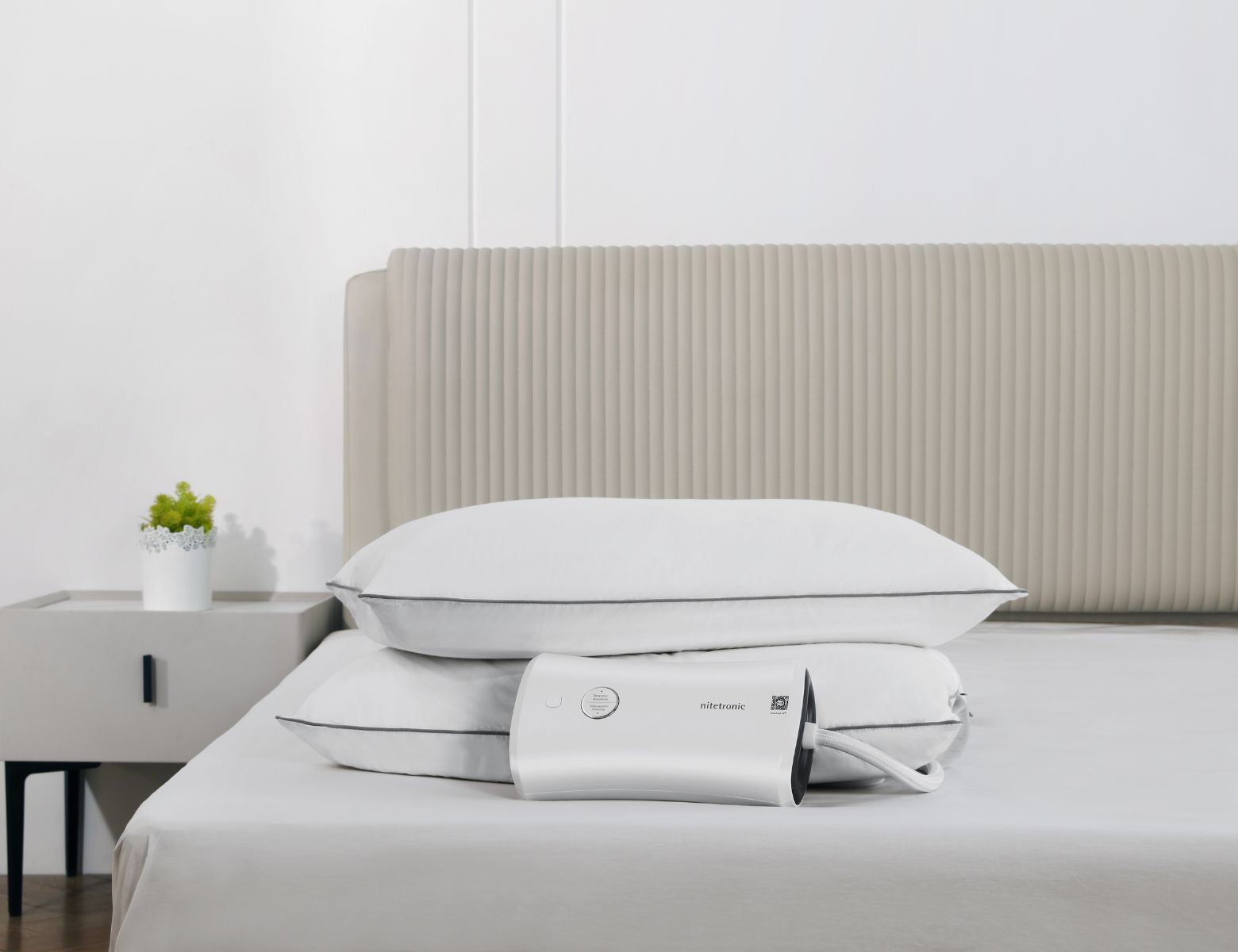Snoring is a common sleep phenomenon but it is the enemy of health, because snoring can cause repeated sleep apnea, causing severe hypoxia in blood and brain, thus increasing the risk of disease. Especially for pregnant women snoring, the danger will be even greater.

According to a sleep survey, only 14% of women who are not pregnant snore, and 30% of healthy pregnant women snore. Severe cases may be accompanied by sleep apnea, affecting the health of themselves and their babies.
Why do pregnant women snore?
There are three main reasons why pregnant women snore.
Typically, pregnant women experience snoring after the second trimester due to weight gain.
As the fetus grows, the intra-abdominal pressure increases, and the pregnant woman's diaphragm (the muscle-fiber structure between the thoracic cavity and the abdominal cavity, which plays an important role in the proportion of respiratory muscle function) rises, thereby increasing the resistance to breathing, resulting in snoring. 
What are the dangers of pregnant women snoring?
Pregnant women are a group that needs extra care. Pregnant women snoring can cause varying degrees of harm to themselves, their babies and the people around them.
For pregnant women, snoring not only affects physical health, but also increases the risk of disease.
Decreased sleep quality. Sleep apnea will usually occur while snoring, so they will breathe with their mouths when sleeping at night, making the mouth and throat dry, or often choking up, which ultimately affects sleep, and affects the spirit and mood of the next day.
Increased risk of gestational hypertension. Snoring can cause poor airflow in a pregnant woman, leading to a rise in blood pressure at night. Some researchers have pointed out that even if pregnant women do not have apnea when snoring, the airflow in the body will be poor, which is the reason why many pregnant mothers experience a rise in blood pressure at night.
For the fetus, maternal snoring can affect fetal development and increase the risk of hypoxemia and increased heart rate.
It was studied that 12% of pregnant women who snored had preeclampsia, and 7.9% of their babies were stunted. Only 2.6% of babies born to women who did not snore had developmental delays. Overall, pregnant women who snored were three times more likely to have babies with stunted growth.
Pregnant women snoring will often have obstructive sleep apnea, resulting in insufficient oxygen supply to the body, thus causing fetal hypoxia and increasing the possibility of hypoxemia.
In addition, if pregnant women snore for a long time, they should always be alert to whether the fetus has a significant increase in heart rate, and pay attention to observe the fetal heart rate.
For husbands, wives' snoring directly affects their sleep quality and emotional quality. In addition, it will also cause the husband to worry about the health of his wife and baby.
How to help pregnant women stop snoring?
It depends on the severity of the snoring.
When they falling asleep, not only is the snoring loud (usually more than 60 decibels), but also uneven. They always stop breathing while snoring or stop breathing for more than ten seconds and then suddenly wake up and gasp, often causing serious consequences.
If the snoring is light and even after falling asleep, or if the snoring occurs occasionally (such as snoring after fatigue), it has no obvious impact on the body, and hardly needs attention.
The conventional way to stop snoring in pregnant women is to strengthen physical exercise and control body weight. Always pay attention to the changes in the physical condition of pregnant women, so as to reasonably adjust the diet structure and minimize the intake of high-fat and high-calorie foods.

Overweight pregnant women should not sleep on their backs. Otherwise, the hypertrophic laryngeal muscles will press the larynx due to gravity and cause snoring.
Also, it helps to stop snoring by using Anti-Snoring products.
At present, the anti-snoring products on the market are numerous, but the effects of anti-snoring are inconsistent. After comparison, the smart anti-snore pillow works better.
Now one smart anti-snore pillow is recommended to pregnant mothers - Nitetronic Smart Anti-Snore Pillow.
Nitetronic Smart Anti-Snore Pillow
Compared with surgery and medicine, physical anti-snoring is less traumatic, has no side effects, and is simpler and more comfortable than other wearable devices. Although it is not as effective as surgery and medicine, it is more effective in anti-snore pillows.
Through the detection of snoring sound and the position of the head by the sensor of Nitetronic smart pillow, the user's head is slightly turned to the side when sleeping on his back, so as to widen the airway to stop snoring. In addition, equipped with Nitetronic APP, users can check snoring anytime.













Leave a comment
This site is protected by reCAPTCHA and the Google Privacy Policy and Terms of Service apply.